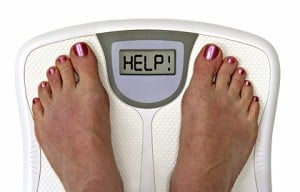Why it’s harder to lose weight than ever

If you struggle with your weight like I do; the problem may not be you. The current thinking around obesity and weight gain seems to be based on certain immutable laws regarding excess calorie intake, less-than-optimum calorie spend, and therefore a certain amount of calorie storage as fat. There is however, another way of looking at weight gain and weight loss that has medical experts like Dr Joseph Ajaka paying attention. Dr Ajaka is a cosmetic surgeon and deals daily with clients struggling with weight issues.
What If it’s Not About Calories?
How much time do dieters spend counting calories? What if the calories didn’t matter? New research indicates that, rather than eating too much to make people gain weight, it’s possibly the reverse. It may actually be the case that being obese causes obese people to eat more. The storing of energy-rich amalgams like glucose in fatty tissue actually leaves less calories circulating through the bloodstream, making those affected by this phenomenon weaker. As a result, their bodies send out the call for more fuel. The more they eat, the more fat cells they create and the more energy these cells suck out of their body – and so the cycle rolls on as obese people get larger. This school of thought explains why calorie-controlled diets rarely work. Recent studies indicate that overfeeding test subjects actually sped up metabolic rates, making the body use energy faster and require more calories more quickly. Underfeeding on the other hand (or restricting the intake of calories), resulted in decreased metabolism and increased hunger.
The Role Of Insulin
One of the most important factors impacting the storage of calories in the body is insulin. Insulin is a hormone, most commonly used to treat various forms of diabetes. Those who require additional insulin as treatment already know that this causes weight gain, while insulin deficiency leads to weight loss. There has long been a link between diabetes and weight management but did you also know that high-GI (Glycemic Index) foods also produce the most insulin when digested in the body? The Glycemic Index refers to the speed and efficiency with which certain types of food are converted into energy within the body. Foods like chips, sweetened cereals, and even white bread and refined grains like white rice, make up a larger part of the average Western diet than ever before. It is these types of foods that have increased insulin levels in the body, encouraging fat cells to store more energy and send out biological ‘I’m hungry’ messages to demand more fuel, and more quickly.
The New Solution
The key, some of the new industry experts reckon, is not low fat diets or even lower calorie intake, but low carbohydrate intake. In particular, limiting the intake of those carbohydrates that are highly refined and quickly metabolised (i.e. high-GI), could make the biggest difference to your weight loss efforts.
The prevailing opinion that all you need to overcome obesity is a good diet and a decent amount of willpower may not be accurate. There is more going on in the obesity epidemic than the experts first thought.
Do you find it hard to lose weight? Let us know why you think maintaining a healthy weight is so difficult for so many people. Share your thoughts with us in the comments box below.


